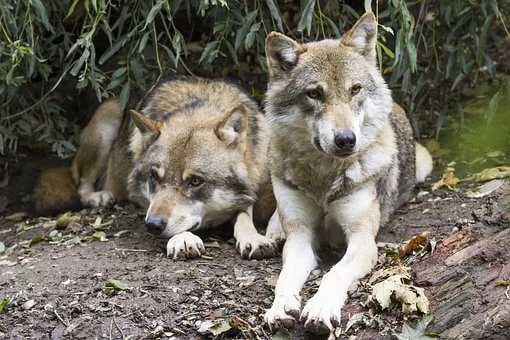Eastern wolves, also known as Algonquin wolves or eastern timber wolves, do not have specific names. They are typically referred to by their scientific name, Canis lycaon, or by their common name, eastern wolf.
Some individuals may be named by researchers or conservationists who study or work with them, but these names are not widely used or recognized.
Some examples of Eastern Wolf Names/Wolves Names:
- Koda
- Akio
- Kenji
- Sakura
- Hiro
- Yara
- Kai
- Rei
- Saki
- Makoto
Male Eastern Wolf Names
Here are Male Eastern Wolf Names/Wolves Names:
- Yutaka
- Kaito
- Ryo
- Daisuke
- Tatsumi
- Masato
- Shinichi
- Haru
- Yuji
- Kosei
Boy Eastern Wolf Names
Here are Boy Eastern Wolf Names/Wolves Names:
- Kaito
- Daisuke
- Tatsumi
- Masato
- Shinichi
- Haru
- Yuji
- Kosei
- Shota
- Tomoya
Female Eastern Wolf Names
Here are Female Eastern Wolf Names/Wolves Names:
- Yurika
- Rina
- Emiko
- Aiko
- Eri
- Miho
- Haruka
- Ayumi
- Yuki
- Riko
Girl Eastern Wolf Names
Here are Girl Eastern Wolf Names/Wolves Names:
- Fumiko
- Kiyomi
- Akiko
- Taeko
- Miki
- Nao
- Yumiko
- Saki
- Yuzuki
- Suzume
Origins of Eastern Wolf Names
Wolf names have been used in various cultures throughout history. In North America, Native American and Inuit cultures have used wolf names to reflect the importance of wolves in their mythology and daily life.
For example, the Ojibwe people call the Eastern wolf ma’iingan, which means “little wolf.” French explorers also contributed to the naming of wolves in the region, with names such as loup-garou (werewolf) and loup-cervier (lynx wolf).
Eastern Wolf Names in Contemporary Culture
Today, wolf names continue to be used in popular culture, such as in literature, film, and video games. Some examples include “White Fang” by Jack London, “Dances with Wolves” by Kevin Costner, and the video game “The Elder Scrolls V: Skyrim.”
These names reflect contemporary attitudes towards wolves and nature, ranging from reverence to fear and danger.
Significance of Eastern Wolf Names
The naming of animals reflects human attitudes towards nature and can reveal important cultural and ecological information. The use of Eastern wolf names reflects the cultural and geographical contexts in which they were used, highlighting the importance of preserving cultural and linguistic diversity.
Additionally, the naming of animals can reflect the social and political attitudes of a society towards nature, and therefore may have implications for conservation efforts.
Eastern Wolf Names and Conservation
The use of wolf names can have implications for conservation efforts, particularly in the context of indigenous communities.
Understanding and respecting the cultural and linguistic diversity of these communities is important for the success of conservation efforts, as it acknowledges the important role that they play in protecting the environment.
Additionally, recognizing the cultural and ecological significance of Eastern wolf names can help to foster greater respect and understanding of the wolf as a species, and promote conservation efforts aimed at protecting them and their habitats.
Conclusion
The use of Eastern wolf names reflects the cultural and ecological diversity of the regions in which they are found. Understanding the significance of these names can reveal important information about human attitudes towards nature and may have implications for conservation efforts.
Preserving cultural and linguistic diversity in the naming of animals is important for the success of conservation efforts and fosters greater respect and understanding of the natural world.
